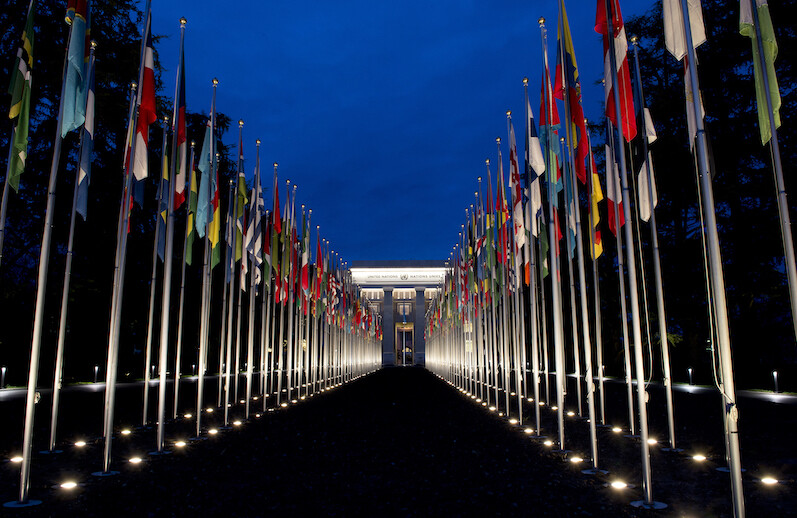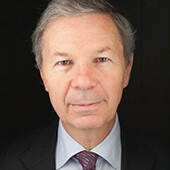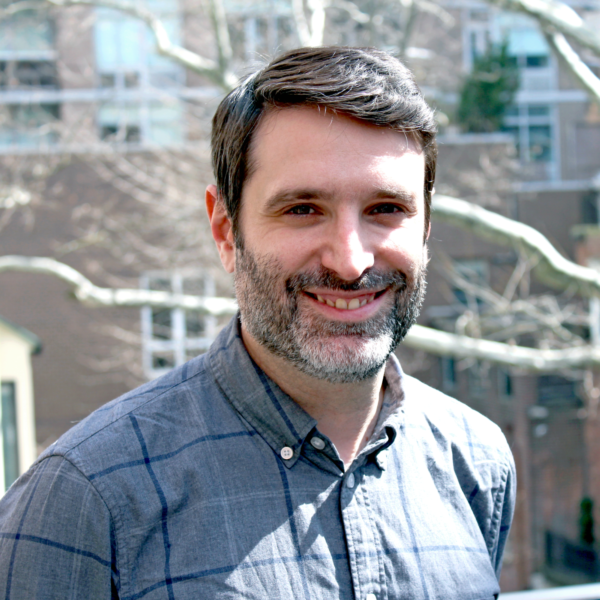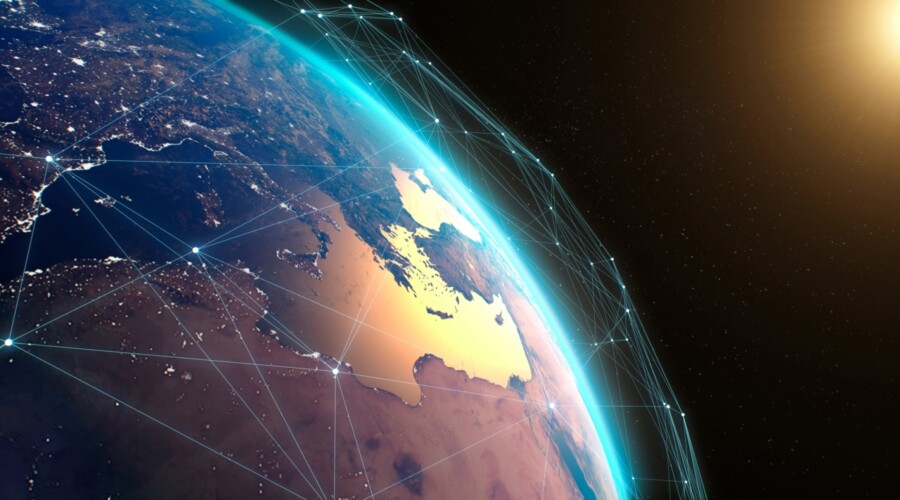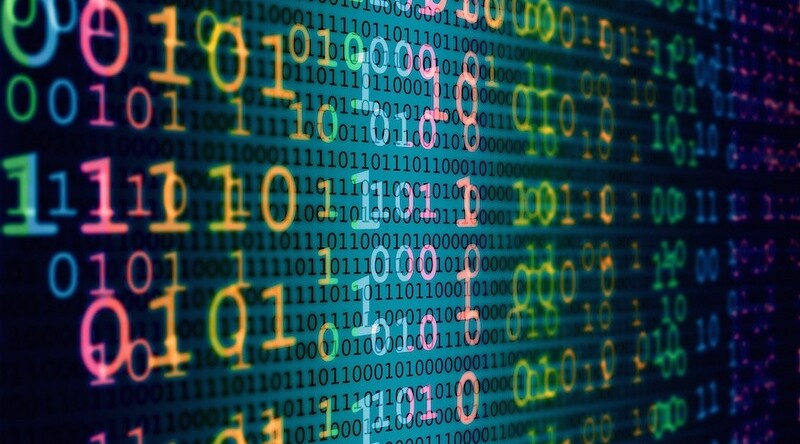Carnegie Council Senior Fellow Jean-Marie Guéhenno, former head of United Nations peacekeeping operations, discusses the tensions between the individual and the collective in a world filled with political tension, pervasive surveillance, and fear of risk. What is the role of the UN in this environment? How can we avoid the violent upheavals that marked other transitional phases in humanity?
ALEX WOODSON: Welcome to Global Ethics Weekly. I'm Alex Woodson from Carnegie Council in New York City.
This week’s podcast is with Carnegie Council Senior Fellow Jean-Marie Guéhenno. Jean-Marie is also a distinguished fellow at Brookings Institution and a member of the secretary-general's high-level advisory board on mediation at the United Nations. He was previously the president and CEO of International Crisis Group and he was the head of UN peacekeeping operations from 2000 to 2008.
Jean-Marie and I spoke about his upcoming book The Second Renaissance: In Search of a New Balance between the Individual and the Collective. We touched on nationalism, surveillance, risk aversion, and a few other areas of tension as the world continues to go through some huge transitions.
We also spoke about the role of the UN, including the effect of domestic politics on collective efforts, like the fight against climate change.
Here's my talk with Jean-Marie Guéhenno.
Jean-Marie, it has been great to meet you. Thanks for doing this.
JEAN-MARIE GUÉHENNO: You're welcome.
ALEX WOODSON: You're working on a book right now called The Second Renaissance: In Search of a New Balance between the Individual and the Collective. I thought we could start by talking about the title—because I think there's a lot in there—and what that means.
Let's start with the first part of the title, The Second Renaissance. There's a pretty good comparison between the Gutenberg Bible or the invention of the printing press and the development of the Internet. I know that that's one parallel, but what are some other parallels that you see with now and the Renaissance?
JEAN-MARIE GUÉHENNO: Well, the printing press changed the way people relate to knowledge, because it allowed people who did not have access to the small libraries where manuscripts were kept to suddenly have access. It changed the hierarchy within the church, leading to the break between the Catholics and the Protestants, and I think you could even say that later on the empowerment of the bourgeoisie led to the advent of more democratic politics in the 19th century, so it's a long process.
I think when you look at what's happening today you see an enormous impact of the Internet and the digital revolution on knowledge and how human groups organize themselves. Today you really have a situation where geography matters less at one level, so you can mobilize virtual communities in ways that would have been unthinkable 30 years ago. So, the question of the legitimacy of what we call, for lack of a better word, the "elites" is radically changing. That's what I mean when I talk about the second Renaissance, because I think on the one hand the triumph of the individual that we have seen in the last 30 years, is partly in a way the culmination of a movement that started with the Renaissance.
At the same time, that triumph of the individual creates a big backlash, hence the subtitle of my book, In Search of a New Balance between the Individual and the Collective. I think there is really a sense that the collective dimension of life is being threatened today, is under attack, and that people want a collective dimension to their lives. They can find it in new types of politics—and I discuss that in my book. They can find it in one-issue movements, which can be transnational, free of any territorial anchor, but they are looking for that, and the politics is changing because of that.
The traditional parties are all in crisis in countries that are very different. There is very little in common between the United States, Brazil, the Philippines, the United Kingdom, and France, but everywhere you see a crisis of politics.
ALEX WOODSON: As you mentioned, during the Renaissance there was the Reformation, the breakup of the Catholic church, which caused massive upheavals in Europe. Do you see a similar kind of transformation happening now? Do you see a similar kind of upheaval that we're in right now or maybe entering into?
JEAN-MARIE GUÉHENNO: That is the risk. I think there will be upheaval; the question is whether it will be violent upheaval or a peaceful transformation. In an age of nuclear weapons and other capacities of mass destruction—and the digital age provides new capacities for mass destruction—we cannot afford that upheaval to be violent.
That's why my provisional title—The Second Renaissance—is ambivalent, because on the one hand I think that the individual agency is something fantastic that has really transformed the world for the better, and we have to recognize it. There are more people who have been lifted out of poverty in the last three decades than in the whole history of humanity. That is something wonderful.
There is that side of this second Renaissance, but there is also the other side, the fact that no human community today feels safe, feels secure in its own identity. That sense of precariousness, that sort of brittle state of human communities creates a lot of opportunities for conflict and violence.
How are you going to manage that brittle character of human communities? How are you going to avoid this dynamism of the triumph of the individual turning into the violence of political structures that are no longer sure what they are? That is the challenge of our time.
ALEX WOODSON: To move to the second part of your title—you talked about this a little bit already—In Search of a New Balance between the Individual and the Collective: "Collective" in the title—what does that refer to exactly?What is the balance that you're really looking to find between the individual and a larger group?
JEAN-MARIE GUÉHENNO: I think every individual has several goals, but they can be organized around two dimensions: There is the individual dimension of personal success, of how far you will go in your own personal life, professionally and otherwise. That's the individual dimension. At the same time, there is a need to belong. There is a need to be part of something that is bigger than you. It can be the nation, it can be the place where you work. It can be many things, but I think in the history of humankind you've always seen this tension between the urge to succeed individually, and the urge to belong in a group that gives a meaning to your life that is bigger than individual success.
My point is that in recent times, in a way, because of the power of the immense energy that exists in this focus on the individual that is at the root of the transformation of the world in the last two centuries, the sense of the collective dimension of life has been a bit lost. As people have been more and more immersed in a world where there are fewer effective intermediate structures between the individual and the global world—the big planet—that creates a sense of loss if not anxiety among many people. That's why you have a backlash today of people who feel that they need some structure.
That backlash takes many different forms. It can be nationalism, but it's a nationalism that is very different from the nationalism of the 19th century or early 20th century. It's not an imperial nationalism of projecting one's own values in a bigger project, it's more the hope that you're going to close your community, to build walls, so that you are protected from a big world on which you have no grip. It's a nationalism based on fear. It's a nationalism that is defensive rather than aggressive. That doesn't make it less dangerous because countries that retract in a sort of introspective manner are not going to be able to manage a world that has a lot of global issues.
ALEX WOODSON: You recently returned from Russia. I would imagine that you had conversations about these issues in Russia. Now you're here in New York. Are you having the same types of conversations? Obviously, you can find parallels between the nationalism in the United States and the nationalism in Russia, but I just wonder, how do you find people talking about these issues in Russia as compared to the United States?
JEAN-MARIE GUÉHENNO: In Russia there is a big effort by the present leadership to emphasize Russian values, to emphasize what makes Russia different from other countries. Now there's an emphasis on presenting Russia as an Asian power because the Russians see the dynamism and rapid growth of Asia, so they are hoping that they're going to benefit from that, so they want to get closer to it.
They also want to get closer to Asia for a very specific reason. I was listening to the mayor of Moscow, and he was explaining how in Moscow already—I was amazed by the figure he mentioned—apparently there are some 150,000 cameras, which makes it—probably with London and Chinese cities—one of the cities where there's the greatest monitoring of people. He was adding that soon they hope that they would connect the cameras to facial recognition and, with artificial intelligence, they would be able to sift through the massive amounts of data collected so that bandits, criminals, don't have a chance.
I found that very interesting because it raises questions that go beyond Russia and beyond China, and it connects the individual and the collective. I'm going to explain why.
There is in our societies an increasing aversion for risk, and one of the reasons I think is that if you put the individual as the absolute goal of your life—in a way there's nothing more valuable than your own personal life—then risk becomes intolerable. The acceptance of a measure of risk doesn't mean that you shouldn't mitigate risk, it's predicated on the idea that there is a society, there is something bigger than you, and you balance the goods of the collective enterprise of society and your own personal risk, and you see risk as something to be managed rather than something to be avoided.
What is striking is that the long-term trend in our societies is to avoid risk at all costs. You see reactions in France recently. There was an industrial accident in Rouen, a city in France. The reaction was that people were terrified. People don't want risk.
Of course, nobody wants excessive risk, but the obsession with elimination of risk leads directly to a return of the collective, so to speak, in a somewhat dangerous way, because from the absolute of individual life you then quickly go to the absolute of a protecting state that is totally in control. That's what is at stake when you talk about, for instance, the risk of crime in a big city.
Of course, if you have a system that watches you all the time, crime is going to be dramatically reduced. So, one can see how from the triumph of the individual and of individualism and individual agency you could go to in a way the exact opposite, to a system in which you have empowered the collective structure so much that your happiness is not just monitored but managed by the structures that collect all those data.
I think this is a key issue for the future of our world: How are you going to balance the curiosity, the dynamism that comes from this sort of individual search that has characterized our world in the last few centuries, with the need for some kind of collective project to ensure a measure of security and to also respond to our need for something collective, but at the same time a collective project that doesn't stifle this individual flicker, this flame, that is at the heart of the dynamism of our societies?
Frankly, that's where the Chinese model is a bit threatening because it has appeal, this sense of total security, of total control, a world that is closer to Aldous Huxley than to Orwell. That could be our future.
When I say "closer to Aldous Huxley than to Orwell," I mean, a world—whether it's a corporation that collects a lot of data on you, or whether it's a state that collects a lot of data on you—that is capable of shaping the way you see the world so that it defines what is being happy. And you are happy actually, because you don't see anything else than what you—the advertisements you see, the websites you visit all reverberate your own aspirations, so you live in a kind of bubble that is tailored to you.
That's Aldous Huxley. That's the "pill of happiness," so to speak, but with modern technology, while Orwell is about repression. If you have Huxley, you don't need repression anymore because you don't feel the urge for anything else than the little bubble in which you live. I'm afraid that with the sort of possibility of total control on the individual, you might end up there.
ALEX WOODSON: As you said, you're afraid of this, so what can we do about this? What can we as individuals do about this? What can our governments do about this?
JEAN-MARIE GUÉHENNO: I think there a lot of questions where we don't have yet the full answers. Montesquieu, the French philosopher in the 18th century, spoke of separation of power. Now you wonder whether the important thing is to fragment power and that the concentration of power, where the combination of big data and artificial intelligence—either by big companies or big government—could threaten the individual curiosity and independence that is needed. I think one has to think of how you fragment power. That's one answer.
I think another answer is you have to reflect on how you organize representation in our world. Today representation is really essentially about just elections and no more political programs. One thing that strikes me is how political programs are not what elections are about anymore. It's much more about personalities than programs, because people don't believe in the agency of governments. They don't believe governments can do much about your life.
Representation today is much more about people who do not deliberate—which is the heart of democracy. The heart of democracy is not elections; it's the deliberation between people. It's the possibility of rational minds to collectively come to a better result through deliberation than if each person stays in her or his own bubble. So, you have to think of how you recreate that deliberation. I think that's one big part of the answer.
I think another part of the answer is probably the size of the structures that manage our lives, and there is a great dilemma, because on the one hand in a global world you need more and more interoperability. On the other hand, you need proximity. That's why I believe that cities are going to become more and more important in being structures that bear some of our collective identities, because you can measure the tangible results of what your mayor does or doesn't. That is a way to recreate legitimacy.
At the same time, they're not the full answer, because the world cannot just be a constellation of cities. The cities have to talk to each other. How are you going to adjust their relationships so that they have shared norms, so that they can trade and exchange ideas and people with each other? That's something that we have to work on.
Then I think at the heart of everything, there's a question of the values that organize our society. I think we live more and more in a sort of unidimensional society, where there's one definition of success—social success, which comes with monetary and financial success—and that's it. I think people resent that because that means if you're not successful, that means that you're not only poor, but you're also dumb; you're just nothing, you're deplorable.
In a balanced society you have different orders of success. Yes, it's good that there are people who are successful in business. There's no society if you don't have successful business. But there are people who are successful in knowledge, and there's no good society if you don't have people—and it's a different order, to have success in knowledge. There's the question of power. Power should not be the prisoner of business or the prisoner of knowledge.
In balanced societies you have different ways of succeeding. There is also the order of generosity, of people who may not be the greatest minds on earth but who radiate generosity. I'm not talking necessarily about financial generosity with regard to being wealthy, but just the sense of empathy. That's an important value.
I think one of the answers to the crisis we are in, is to encourage in society a sense that there are different paths in one's human life which will allow us not to think of the elites versus the rest—the elites lumped together in one group—but people who may have chosen very different paths.
It's important in education—maybe I'll end on that, because education is the key—to recognize that there are competing values and that you can be successful in one arena and not in another, and that is just fine, and recognizing that pluralism is the way to fight a unidimensional society that creates anxiety, and where failure in social success is a condemnation. You can fail in economic success and be a remarkable success and contribute to your community in very different ways, but that's not the dominant ideology today, and that's I think something we have to change.
ALEX WOODSON: That's really interesting. I had a lot of questions about governance and about the United Nations, and the North Atlantic Treaty Organization (NATO), and things like that, but a lot of your answers come back to personal things that we need to do, things that we need to think about individually.
If I could ask just a couple more questions to go back to some of my original points. As someone who has worked in the United Nations, what's the role of the United Nations in this new world? I would assume that there need to be reforms. Do you have ideas for how it can be reformed or how it can be changed?
JEAN-MARIE GUÉHENNO: I have worked at the United Nations for many years. I think in some ways it's an organization ahead of its time and, in some ways, it's way behind its time.
I think it's ahead of its time in the sense that the United Nations—with a charter that starts with the words "We the people"—recognizes that there is a certain universality of humanity that should inform our actions. Today there is no such thing as an "international community." We always talk of international community, but there's no such thing. The United Nations is that organization that claims that there should be an international community with shared values. That's what makes it ahead of its time, because certainly if we want to manage our planet, we need that kind of universalism.
At the same time, the United Nations is behind its time because it's essentially an organization of states, and states continue to play a very important role, but there are many non-state actors, often transnational state actors, for good and bad, and how you allow those non-state actors to be part of a global conversation is of critical importance, and in a way that is sufficiently transparent so there is accountability.
We talk about public-private partnerships. There are people who are suspicious of that because sometimes it can be a way for powerful business interests to harness the authority and legitimacy of international organizations to push their own interests.
At the same time, you're not going to transform the world if you do not integrate the various structures that carry one part of our collective identities, which are not just carried by nations, and nations have more and more difficulty carrying our identities.
That's why I think the United Nations should evolve, but it has a hard time evolving because of the way it is structured, because states do not willingly recognize that they have competition. I think in the end the transformation of the United Nations will come more from the transformation of its Member States than from the transformation of the United Nations itself. I think it would be hard for the United Nations to transform itself if its Member States do not, themselves, evolve.
ALEX WOODSON: Could you speak about that more specifically? How should Member States be evolving?
JEAN-MARIE GUÉHENNO: I think it comes back to the discussion on representation, how you make sure that a variety of interests and concerns are addressed, how you create a national conversation before you create a global conversation.
We don't have the full answer yet, to be honest. We have, for instance, this big global movement to raise awareness on the risks of climate change. The challenge there is how do you move from such a movement to operational politics, because operational politics are still effected through states. On the one hand, you raise global awareness; on the other hand, there is not much articulation with national debate. These are the things that need to change in Member States.
ALEX WOODSON: Just to close on a very big thought, you have Member States like the United States; you have France, the United Kingdom, Germany, these democratic European nations; you have China and Russia, which have their own agendas, very different ideologies, very different systems of government.
This is a very big question, I know, but how can you bring all these countries together to work on something like climate change? Do you think the domestic politics need to be firmed up for that to happen, and that way we can all work together with different ideologies on a global problem, or is that a little too idealistic?
JEAN-MARIE GUÉHENNO: I think the domestic politics are a big part of it. You see, for instance, in the United States at the moment you have a federal government and a president who pulled out of the Paris accord, who is not interested in taking effective measures. At the same time, you have big actors like California and a number of cities that are taking action. That is something valuable.
Russia just joined the Paris accord. If you are a cynic, you will say that the targets that they have do not create much constraints on Russia, but nevertheless it shows that global pressure has played a role. But I think a lot will come from how—in Russian cities; in various regions of Russia—that issue is addressed.
The pollution in big Chinese cities is brutal, as it is in India. It's really becoming a priority issue, so I think there are real possibilities of dialogue on such issues.
It will be very difficult because the profile of countries is different, and also because you have mature economies like the United States that do not add, so to speak, to the stock of carbon too much every year because they are mature, and you have countries like China, that are still growing at a fast clip and add a lot. How, in the mature countries, you reduce your contribution and how, in the growing countries, you reduce the added contribution that your growth produces—these are very difficult, sensitive political issues. But I think if you ensure that the data are there, that there is a rational discussion, you can make progress.
That's where I'm of two minds on the global movement that we have seen happening, because on the one hand I think it's important to mobilize people. On the other hand, I think if you create a sense of panic, you shut down the debate because if the promise of the future is the promise of hell, you can only have absolutist responses, just like in communist times you had the promise of paradise, and that led to absolutist promises. I think it's important to keep the political debate open, and for that it's a fine balance to be found between recognizing the importance of the issues, and at the same time not creating a sense of panic that does not help a democratic debate.
ALEX WOODSON: Jean-Marie, thank you so much. This has been great.
JEAN-MARIE GUÉHENNO: Thank you.
